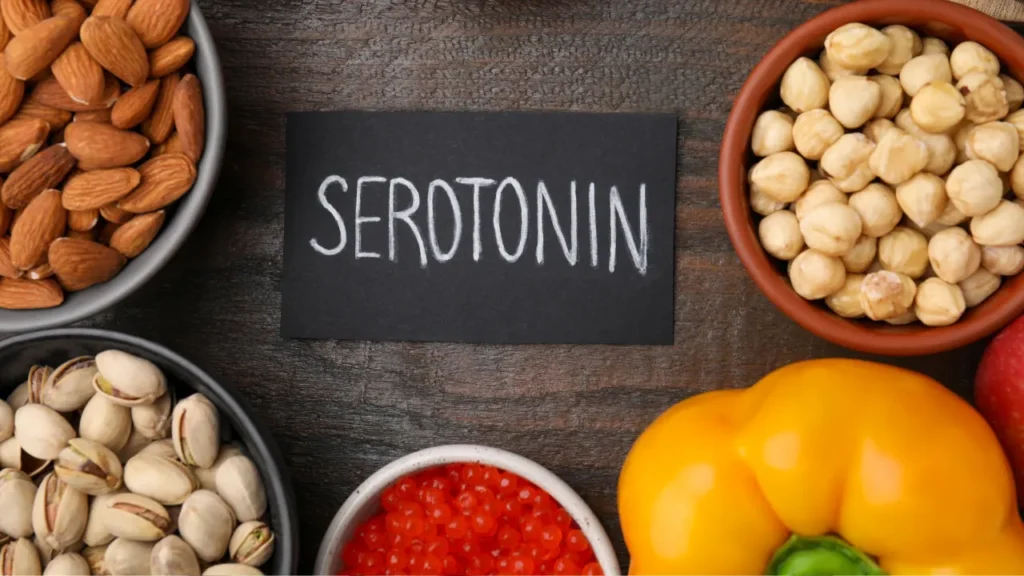A medicinal mushroom called Lion’s Mane (Hericium erinaceus) has been used for generations in traditional Chinese medicine because of its potential advantages for the brain and general health. It has received much attention recently in the nootropics community due to its ability to improve alertness, focus, and cognition. The nature, health advantages, recommended dosage, adverse effects, possible drug interactions, and responsible usage of Lion’s Mane as a nootropic supplement are all covered in this article. An in-depth discussion will also be given on Lion’s Mane’s chemistry and the physiological mechanisms underlying its effects on the body and brain.
You May Also Like:
Horbaach Lion’s Mane Mushroom Extract Reviews: A Leading Herbal Nootropic Product
Lion’s Mane: Benefits, Dosage, Side Effects, Drug Interactions, And Other Important Information is an original (NootropicsPlanet) article.
Nature of Lion’s Mane
The tooth fungus family includes the edible and therapeutic mushroom lion’s mane. Its characteristic cascading, icicle-like spines give this plant, which is native to North America, Europe, and Asia, its distinctive appearance. Several bioactive substances, including polysaccharides, beta-glucans, hericenones, and erinacines, are present in the fruiting bodies of lion’s mane, adding to its potential health advantages.
Health Benefits of Lion’s Mane
Several possible health advantages of lion’s mane have been discovered through research, notably in terms of cognitive function and neurological health. Among the main benefits are:
- Cognitive Enhancement: In animal models and human research, lion’s mane has been found to enhance cognitive performance. Research suggests that it may improve recall, comprehension, and general cognitive function, thus making it a helpful nootropic substance.
- Neuroprotection and neuroregeneration: Lion’s mane is thought to have neuroprotective properties, and it has been demonstrated that it increases the production of brain-derived neurotrophic factor (BDNF) and nerve growth factor (NGF), both of which are essential for the survival, growth, and differentiation of neurons. This may stimulate the repair of damaged neurons and protect against age-related cognitive decline.
- Mood and Stress Regulation: Early evidence points to lion’s mane’s potential for antidepressant and anxiolytic effects, presumably due to its capacity to control neurotransmitter levels and encourage neurogenesis.
- Immune Support: Lion’s mane includes beta-glucans, which are known to support immunological function by stimulating immune cells and regulating the immune response. This is true of many medicinal mushrooms.
- Antioxidant and Anti-Inflammatory Effects: Lion’s mane has antioxidant and anti-inflammatory actions, which may help explain its neuroprotective and overall health-improving effects.

Chemistry of Lion’s Mane
Polysaccharides, hericenones, and erinacines are three general bioactive substances in lion’s mane. Together, they exert their cognitive-improving, neuroprotective, and health-promoting benefits.
- Polysaccharides: Beta-glucans, a polysaccharide known for modulating the immune system, are among the polysaccharides in lion’s mane. These polysaccharides have been demonstrated to have anti-inflammatory and antioxidant characteristics, which may help explain the lion’s mane’s capacity for neuroprotection.
- Hericenones: This group of chemical substances is mostly present in the fruiting body of lion’s mane. It has been demonstrated that helicenones promote the synthesis of nerve growth factor (NGF), which is necessary for neuronal survival, differentiation, and growth.
- Erinacines: This class of diterpenoid substances is primarily present in the mycelium of lion’s mane. It has been demonstrated that erinacines, like hericenones, stimulate NGF synthesis, aiding neuroprotection and neuroregeneration.
Physiological Mechanism of Action
Because of its particular bioactive components and how they interact with different cellular processes, Lion’s mane’s cognitive-improving and neuroprotective properties can be attributed to physiological mechanisms.
- Nerve Growth Factor (NGF) Stimulation: Stimulation: Both hericenones and erinacines can increase the production of NGF, a neurotrophic factor necessary for the development, maintenance, and differentiation of neurons. Lion’s mane may enhance neuroprotection, neuroregeneration, and general cognitive performance by increasing the production of NGF.
- Antioxidant and Anti-inflammatory Effects: Lion’s mane contains polysaccharides that may protect against oxidative stress and inflammation-related brain damage, adding to its neuroprotective effects.
- Modulation of neurotransmitters: Early study indicates that lion’s mane may affect the levels of neurotransmitters like acetylcholine, dopamine, and serotonin, which are essential for cognitive function, mood control, and stress management.
- Synaptic Plasticity: Lion’s mane may increase synaptic plasticity, essential for memory, learning, and general cognitive function, by encouraging the creation of neurotrophic substances.

Optimal Dosage of Lion’s Mane
A typical dosage range for cognitive enhancement is 500-3,000 mg per day, often divided into two or three doses, although the ideal dosage of Lion’s mane might vary depending on individual characteristics and the exact formulation. It is advised to begin with a lesser dosage and increase it gradually to gauge tolerance and reaction.
Side Effects of Lion’s Mane
There have been few recorded negative effects for lion’s mane, which is generally regarded as safe and well-tolerated. However, particularly when first beginning supplementation, some people may feel moderate gastrointestinal discomfort, such as bloating or gas. Rarely, people who have sensitivities to mold or mushrooms may also have an allergic reaction to lion’s mane. Before starting any new supplement regimen, especially for people with pre-existing medical conditions or those using prescription drugs, it is imperative to speak with a healthcare expert.

Potential Substance Interactions with Lion’s Mane
Lion’s mane hasn’t been the subject of much research, but when used appropriately, it’s generally regarded as safe. Caution should be observed while taking lion’s mane with other dietary supplements or drugs, especially those with proven neuroactive or immunomodulatory properties. Talk to your doctor if you are taking any vitamins or medicines that could interact.
Best Responsible Uses of Lion’s Mane
Consider the following recommendations to ensure the best ethical use of Lion’s Mane as a nootropic supplement:
- Quality and Purity: To guarantee consistent quantities of active components, choose a reliable source that offers high-quality, standardized extracts. Choose items whose potency and purity have undergone independent testing.
- Begin with a Low Dosage: Start with a lower dosage and gradually increase it to gauge each person’s tolerance and response. This strategy will enable a customized, efficient dosage while reducing adverse effects.
- Watch and Modify: Pay attention to how taking supplements of Lion’s Mane affects your body and mind. If you encounter any negative effects or do not enjoy the anticipated cognitive advantages, reduce the dosage or think about stopping use.
- Speak with a Medical Professional: Before beginning any new supplement regimen, always seek medical advice, especially if you have current medical concerns or are taking prescription drugs.
Lion’s Mane:
Conclusion
Lion’s mane is a remarkable natural remedy with many potential health benefits, backed by both traditional use and modern scientific research. Renowned for its unique appearance resembling a lion’s mane and its distinct taste, lion’s mane has gained recognition for its medicinal properties and therapeutic effects. It is a remedy with diverse health-promoting properties for brain health, mood regulation, digestive support, immune function, and overall well-being. Whether consumed as a culinary ingredient, herbal tea, or dietary supplement, lion’s mane offers a safe and effective way to harness its therapeutic benefits and promote optimal health and vitality.

References:
- Hericium erinaceus, a medicinal fungus with a centuries-old history: Evidence in gastrointestinal diseases. Link: https://www.ncbi.nlm.nih.gov/pmc/articles/PMC10280799/
- Improving effects of the mushroom Yamabushitake (Hericium erinaceus) on mild cognitive impairment: a double-blind placebo-controlled clinical trial. Link: https://pubmed.ncbi.nlm.nih.gov/18844328/
- Neuroregenerative potential of lion’s mane mushroom, Hericium erinaceus (Bull.: Fr.) Pers. (higher Basidiomycetes), in the treatment of peripheral nerve injury. Link: https://pubmed.ncbi.nlm.nih.gov/23510212/
- Hericium erinaceus extracts alter behavioral rhythm in mice. Link: https://pubmed.ncbi.nlm.nih.gov/27544998/
Important Note: The information contained in this article is for general informational purposes only, and should not be construed as health or medical advice, nor is it intended to diagnose, prevent, treat, or cure any disease or health condition. Before embarking on any diet, fitness regimen, or program of nutritional supplementation, it is advisable to consult your healthcare professional in order to determine its safety and probable efficacy in terms of your individual state of health.
Regarding Nutritional Supplements Or Other Non-Prescription Health Products: If any nutritional supplements or other non-prescription health products are mentioned in the foregoing article, any claims or statements made about them have not been evaluated by the U.S. Food and Drug Administration, and such nutritional supplements or other health products are not intended to diagnose, treat, cure, or prevent any disease.


